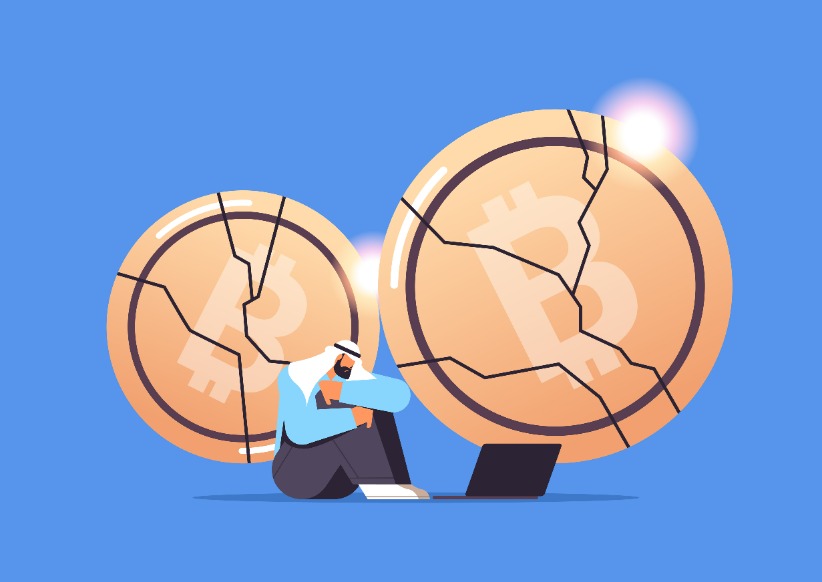
- BlockFi has become the latest firm to file for bankruptcy, citing “significant exposure” to FTX
- It has sued FTX to reclaim Robinhood shares which it alleges Bankman-Fried had pledged as collateral
- BlockFi bankruptcy was a longtime coming, with the firm rescued by a $400 million credit facility from FTX earlier this year
- Regulation simply must come to the space, as customers continue to feel pain
Another one bites the dust.
In a move that absolutely everyone saw coming, BlockFi filed for bankruptcy Monday.
The embattled crypto lender’s court filings reveal it has over 100,000 creditors and blame “significant exposure” to the insolvent exchange FTX. It is yet another dark mark on crypto’s copybook, which is quickly running out of space.
BlockFi bankruptcy was coming
BlockFi had suspended withdrawals in the aftermath of the FTX collapse nearly three weeks ago. As investors of Celsius, Voyager Digital and so many other platforms will tell you, that generally is the final straw. It’s hard to gain customers’ trust when you, you know, don’t let them get their money out.
And so the filing this week comes as no surprise. BlockFi did contend that it had hopes of a resurgence. It revealed cash on hand of $257 million, which it says is enough to get it through bankruptcy proceedings, allowing it to avoid debtor-in-possession financing.
Call my a cynic, but I can’t see how the firm recovers from this. BlockFi advisor Mark Renzi contended that BlockFi is “well-positioned to move forward despite the fact that 2022 has been a uniquely terrible year for the cryptocurrency industry”.
Hmmm. If this is what well-positioned is, then I need to retake English classes. Like I said, I can’t see how customers will ever trust BlockFi with their funds again. Not to mention that big glaring hole on their balance sheet, and the small matter of them having literally filed for bankruptcy.
BlockFi sue FTX
BlockFi is also suing FTX to seize Robinhood shares which the lender alleges that Sam Bankman-Fried pledged as collateral against loans he has now defaulted on. Bankman-Fried bought 7.6% of Robinhood stock earlier this year.
The additional legal trouble – aside from the bankruptcy filing, just to be clear – simply highlights quite how messy and incestuous this entire thing is. As I wrote about when dissecting what is next for crypto, Bankman-Fried had his hands in a lot of pots, and the process of untangling this debacle will not be fun.
A lot of it ties back to Luna collapsing earlier this year, which was supposedly when FTX’s sister trading firm Alameda had a lot of loans called, having gotten caught up in the contagion themselves. FTX sent over client assets from the exchange, with the now defunct FTT token pledged as collateral. The same token that FTX created, that is.
BlockFi had its own trouble amid this, of course. They were forced to sign a deal with FTX for a $400 million credit facility (I told you – incestuous!) in order to keep the doors open. The deal also gave FTX the right to acquire BlockFi at any point until July 2023.
Ironically, it is that same white knight – Sam Bankman-Fried – that is now triggering the latest batch of contagion, having said that is exactly what he trying to counteract with all his bailouts earlier this year. And this time, BlockFi has fallen.
2) also:
"I do feel like we have a responsibility to seriously consider stepping in, even if it is at a loss to ourselves, to stem contagion," he said. "Even if we weren't the ones who caused it, or weren't involved in it. I think that's what's healthy for the ecosystem…"
— SBF (@SBF_FTX) June 19, 2022
In crafting this piece, I came across the below tweet I made about BlockFi, who reacted to Celsius imploding by sending me an email advertising higher yields. I think it is fair to see some of these firms practised less-than-stellar risk management, don’t you think?
https://twitter.com/DanniiAshmore/status/1545373237735047168
What is next for BlockFi customers?
Unfortunately, customers now face a long wait. Like, a really long wait. Mt Gox, the former exchange which once captured 70% of the Bitcoin trading market, went bankrupt in 2014 and customers still haven’t seen a cent.
Let’s hope this won’t be that long, but Chapter 11 is not an overnight process. As John Ray III said in court filings shortly after he took over the CEO gig at FTX to steer them through the bankruptcy process, “never in my career have I seen such a complete failure of corporate controls and such a complete absence of trustworthy financial information as occurred here”.
And that is the same John Ray III who oversaw Enron’s bankruptcy, one of the worst bankruptcy cases in financial history.
It was obvious already but it gets more so by the day: the cryptocurrency space needs a complete overhaul of regulation. Right now, some common sense would also be nice.

